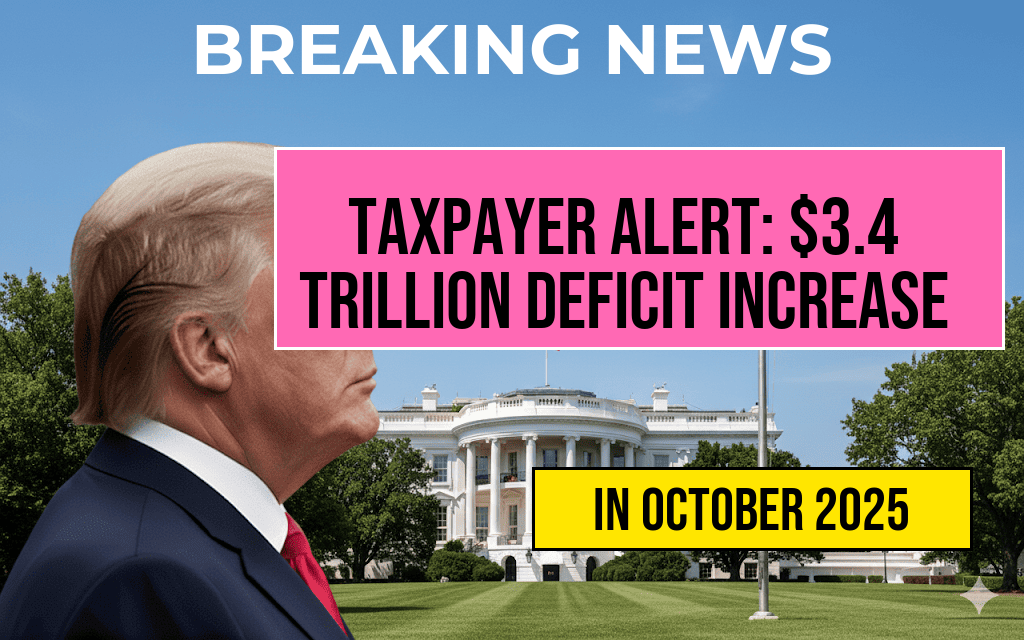The ambitious infrastructure initiative, dubbed the “One Big Beautiful Bill,” is projected to significantly impact the federal deficit, with estimates indicating an increase of $3.4 trillion over the next decade. This sweeping proposal aims to address a multitude of pressing national needs, including transportation, broadband access, and renewable energy projects. However, concerns are mounting among fiscal watchdogs and lawmakers regarding the long-term financial implications of such extensive spending. As the Biden administration pushes forward with this plan, aimed at bolstering economic recovery and infrastructure modernization, the debate over its funding and potential consequences is intensifying.
Details of the Proposal
The “One Big Beautiful Bill” seeks to transform various aspects of American life through strategic investments. Key components of the proposal include:
- Transportation Infrastructure: Upgrading roads, bridges, and public transit systems.
- Broadband Expansion: Ensuring high-speed internet access in rural and underserved areas.
- Green Energy Initiatives: Investing in renewable energy sources and technologies to combat climate change.
- Job Creation: Generating millions of jobs across multiple sectors.
Fiscal Concerns
While the initiative aims to deliver significant benefits, economists warn that the projected deficit increase could have lasting effects on the national economy. The Congressional Budget Office (CBO) has released a report outlining the potential fiscal ramifications, highlighting that the spending could exacerbate the existing national debt, which currently stands at over $31 trillion.
Potential Funding Sources
To mitigate the impact on the deficit, the Biden administration has proposed several funding mechanisms, including:
- Tax Reforms: Adjustments to corporate tax rates and closing loopholes.
- Increased IRS Enforcement: Enhancing efforts to collect unpaid taxes from high-income earners.
- Public-Private Partnerships: Encouraging private sector investment in infrastructure projects.
Political Reactions
The proposal has sparked a polarized response among lawmakers. Supporters argue that the investments are necessary for long-term economic growth and improved quality of life. Conversely, critics express concern over the sheer scale of spending and its implications for future generations. The Washington Post reports that some Republicans are calling for tighter spending controls and a more cautious approach to fiscal policy.
Public Sentiment
Public opinion on the “One Big Beautiful Bill” remains divided. A recent survey indicates that while many Americans support infrastructure improvements, there is skepticism about the government’s ability to manage such vast expenditures responsibly. Concerns about inflation and the rising cost of living have further complicated the discussion, as many citizens fear that increased government spending could lead to higher taxes in the future.
Future Implications
The long-term effects of the “One Big Beautiful Bill” will depend on various factors, including the success of proposed funding strategies and the overall economic climate. Analysts suggest that careful monitoring of the bill’s implementation will be crucial to ensure that its benefits outweigh the financial burdens it may impose. The administration’s commitment to transparency and accountability will be essential in maintaining public trust and support for such a significant undertaking.
Conclusion
As the legislative process unfolds, the implications of the “One Big Beautiful Bill” will continue to be a focal point of discussion among economists, lawmakers, and the general public. With a projected deficit increase of $3.4 trillion, the balance between necessary infrastructure investment and fiscal responsibility remains a pressing challenge for the nation.
Frequently Asked Questions
What is the ‘One Big Beautiful Bill’?
The ‘One Big Beautiful Bill’ refers to a proposed piece of legislation that aims to address various economic issues but is projected to significantly increase the deficit by $3.4 trillion.
How will the bill impact the national deficit?
The bill is expected to result in a deficit increase of approximately $3.4 trillion, which could have long-term implications for the country’s financial health and fiscal responsibility.
What are the main components of the bill?
While the specific components of the ‘One Big Beautiful Bill’ are not detailed in the alert, it generally includes various spending initiatives aimed at stimulating the economy and addressing social issues.
Who will be affected by the projected deficit increase?
The projected deficit increase could affect taxpayers, government spending priorities, and overall economic stability, potentially leading to higher taxes or reduced services in the future.
What should taxpayers do in response to this alert?
Taxpayers are advised to stay informed about the implications of the ‘One Big Beautiful Bill’ and consider how the projected deficit increase may affect their financial situation and future tax obligations.

Leave a Reply